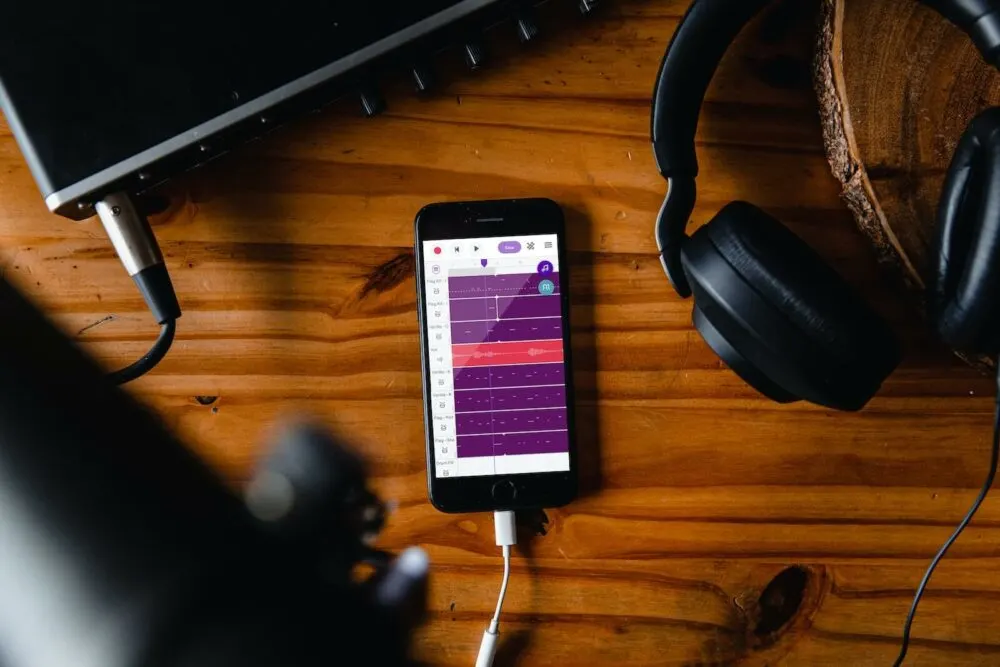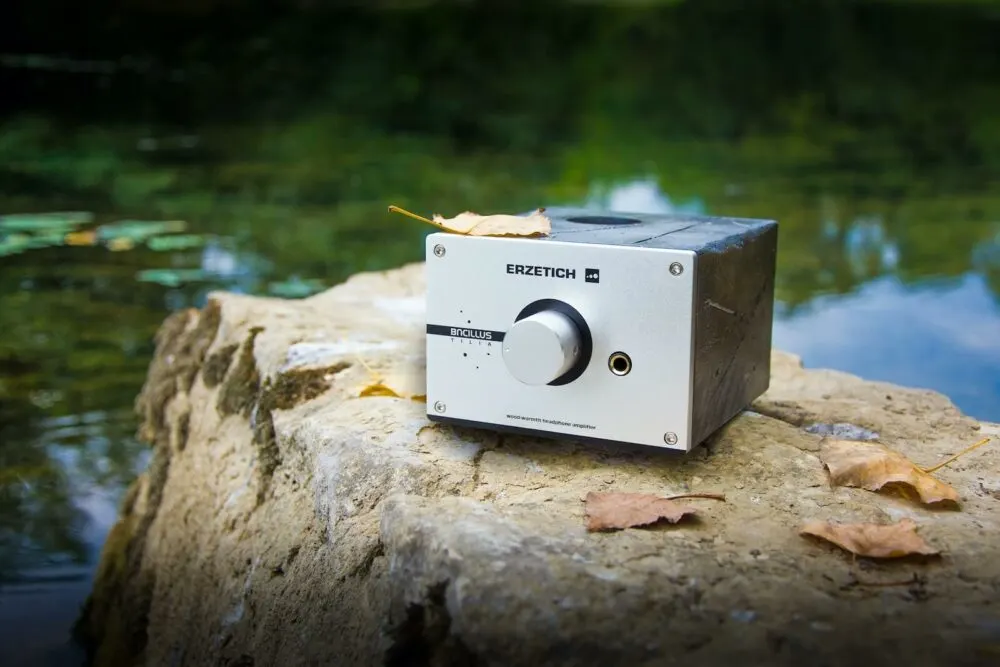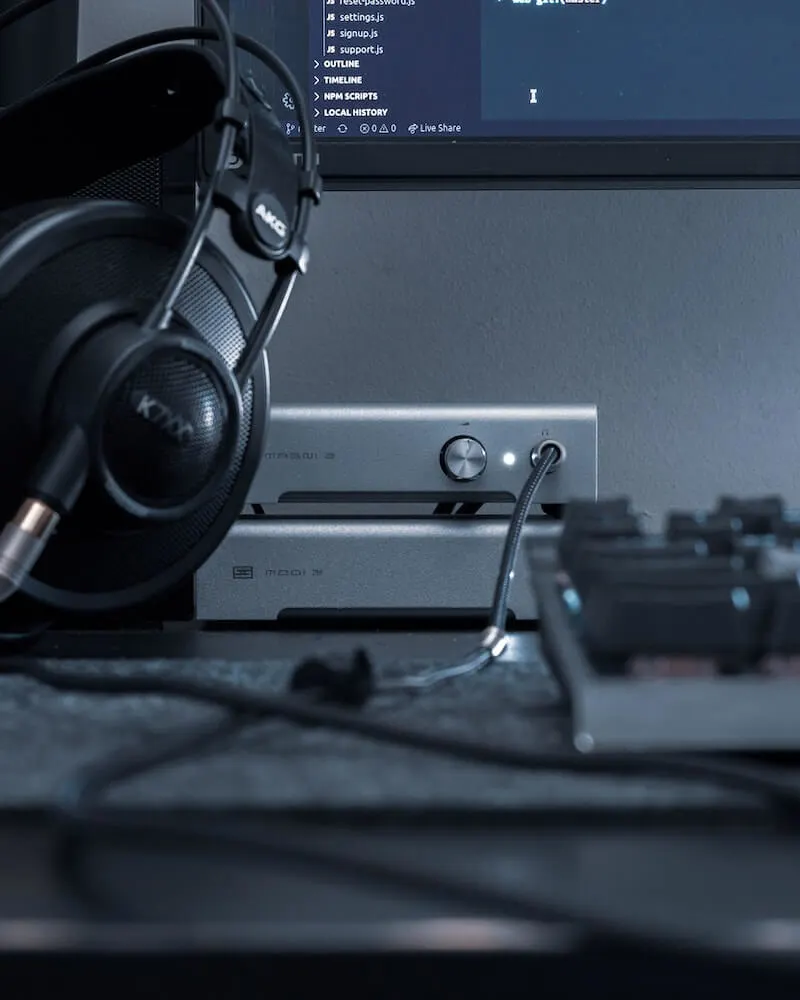You are an audiophile who wants to get the best sound quality possible from your audio setup. You’ve done some research, but all this information is confusing! You might have heard of two new equipment pieces- a DAC or an Amp. But which one do you need? This article will answer your questions about DAC vs. Amp so that you can make the right decision for yourself.
DACs and amps are standard accessories for music professionals and audiophiles alike. The acronyms are Digital to Analog Converter, DAC, and Amplifier, respectively. Often, they are confused with one another – but they are quite different pieces of equipment.
Let’s explain how they are different and which one you need.
What is a DAC?
A DAC is a device that converts digital audio signals into analog signals played on a speaker. This might include music from your phone, computer, or other electronic devices. This means transforming the data from 1 and 0s (HDMI and optical cables use digital signals) to an electrical signal that a speaker can interpret.

The quality of the DAC will determine how accurately it can convert these signals and, as a result, the sound quality of your music. This is why high-bitrate music files often sound better than low-bitrate files when played back through a high-quality DAC.
Most electronic devices already have a DAC built-in. Otherwise, you wouldn’t be able to hear any sound! However, the DAC in your device might not be excellent – so you might want to upgrade.
What is an amp?
An amplifier is a device that takes an electrical audio signal and makes it bigger/louder. It does this by increasing the signal’s power to drive speakers more effectively.
Imagine a water stream – the water is analogous to the electrical audio signal from a DAC. If you want more power behind this stream, you need an amplifier! It will take the relatively small stream and turn it into something much more prominent to push against your speakers/headphones with greater force.
A little amplification always helps, especially if we’re talking about headphones or earbuds that don’t have built-in amplifiers. But too much amplification could damage your equipment or produce distortion in sound output (which we do not want). That’s why you shouldn’t buy an amp until you know you require it.
When do you need a DAC?
As we mentioned before, most devices come with a DAC already built-in. However, if you use high-bitrate music files or listen to music on devices that don’t have a good DAC, you might need an external DAC.
The reality is most people don’t need an external DAC. Because most devices already have built-in ones that are good enough for general listening purposes. It might be worth investing in a dedicated DAC if you want to use high-quality audio files.

If you regularly stream music from services like Apple Music or Spotify, then a DAC will not improve the sound quality of that music. This is because those services use lossy compression to stream their audio files – they’ve been compressed and made smaller for faster streaming speeds.
Also, if you use Bluetooth headphones or earbuds, you don’t need a DAC because those devices already convert the audio from digital to analog.
If you don’t know what high-quality audio files are, you probably don’t need an external DAC unless you’re sourcing your audio files from an ancient device with a low-quality DAC.
When do you need an amp?
Like what we learned about the DAC, most devices already have an amp built-in. And this works for most devices, most of the time.
However, there are some cases when you might want or need an external amp. For example:
- If you’re using high-impedance headphones or earbuds (over 32 ohms), you’ll need an amplifier to power them correctly. Here are some of the best headphones amps under $100.
- You’ll need an amp if you’re trying to get a lot more power out of your audio system for better sound quality or louder volumes.
- If your device’s built-in amp is not very good, you might want to buy an external one.
Again, you probably don’t need an amp if you don’t know what high-impedance speakers or headphones are. But an amp is a must for audiophiles who want to power their high-quality headphones for the best possible sound.
Without an amp, high-impedance headphones sound weak and dull. But with the help of an external amp, they can sound powerful and robust! You aren’t paying hundreds of dollars to connect a high-quality sound system to a cheap built-in amp.
Should you buy a DAC and an amp together?
Many DACs come with amps built-in, and many amps come with DACs built-in. But should you buy them together?
Sometimes, buying them together in a combo package is more convenient. This way, you know they will work well together and don’t have to worry about compatibility issues. Also, they tend to be portable, and you end up saving space and money.

However, there are also cases where buying them separately can be better. For example, if your device already has a good DAC but needs an amp for headphones with high impedance, buying a standalone amplifier would make more sense than a combo DAC/amp.
If you have a sound card on your computer, you already have both, and they probably are high quality, as opposed to the regular built-in audio chipsets found in most motherboards and smartphones.
Will a DAC improve sound quality?
The answer is yes, but it depends on the DAC and the music. Listening to high-fidelity and high-bitrate songs to tell the difference would be best.
A DAC will not improve the sound quality of music compressed and streamed from a service like Spotify or YouTube. However, a DAC can significantly improve sound quality if you use high-quality audio files that have not been compressed.

Also, if your device’s built-in DAC is not very good, you might want to buy an external one. But for most people, their devices come with decent DACs already built-in, so they don’t need to worry about this.
Will an amp improve sound quality?
It depends. Like what we learned about the DAC, most devices already have an amp built-in. And this works for most devices.
If you have a high-impedance pair of headphones or speakers, you might need an amp to power them. If your device’s built-in amp is not very good, you might also want to buy an external one.
Sound quality will improve significantly in this case as your speakers won’t sound muffled and thin. As a rule of thumb, an amp should always be your first purchase if you want to improve the sound quality of your speakers.
However, buying an amp will not significantly affect how they perform if all you have are low-impedance headphones or speakers (under 32 ohms). Don’t throw your money away!
DAC vs. Amp – The bottom line
Now that we know more about DACs and amps, we can answer the question: which one should you buy? The bottom line is that it depends on your needs. You should buy a standalone amplifier if you need an amp for high-impedance headphones or earbuds.
You might want to consider buying an external DAC if you’re listening to high-bitrate (HiFi) music with your device. However, if the built-in DAC of your device is not bad, then there’s no point in spending money on a separate unit!
Let us know if you have questions or comments about DACs and amps! We’re always happy to help you find the best solution.